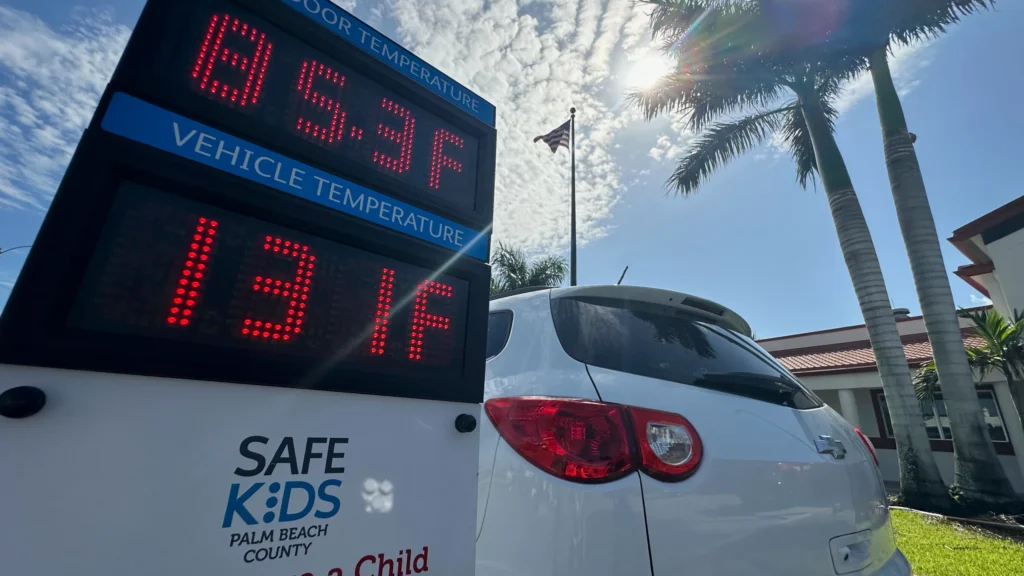Rising Temperatures Fuel Surge in Hot Car Deaths
A record heat wave along the East Coast has child advocates warning parents about the deadly risks of hot car deaths, which have already claimed nine young lives this year across seven states, according to Kids and Car Safety.
Five of those deaths occurred in June alone, highlighting how quickly children can succumb to heatstroke inside vehicles, even when outside temperatures aren’t extreme.
How Quickly Cars Become Deadly for Children
Kathy Wall, director of Safe Kids Palm Beach County, emphasized that the temperature inside a vehicle can rise 20 degrees within 20 minutes.
“If it’s an 80-degree day, which is cool for South Florida, the car can reach over 100 degrees in just 10 minutes,” Wall warned.
Data compiled by Jan Null, a meteorologist at San Jose State University, shows 80% of a vehicle’s heat rise happens in the first 30 minutes, with cabin temperatures potentially exceeding 150°F (65°C).
AI Manipulation: What My Failed Podcast Taught Me About Trust and Transparency
Every State Except Alaska Has Reported Hot Car Deaths
According to the National Safety Council, since 1998, every state but Alaska has experienced at least one hot car death. Record years include 2018 and 2019, with 53 child fatalities each due to being left in hot cars.
“Children sweat less than adults and their internal temperature can increase three to five times faster,” explained Capt. Karen Derogatis of Palm Beach County Fire Rescue. “This makes it critical to ensure kids are never left alone in vehicles.”

Distraction: The Silent Risk Factor
Child safety experts note that distraction is often the cause of children being forgotten in cars.
“It’s not limited to a specific socioeconomic or cultural group,” Wall said. “This tragedy has happened to doctors, teachers, and child care workers alike.”
She highlighted that changes in routine—like a parent who doesn’t normally drop a child off at day care—are common risk factors.
ACT: A Lifesaving Routine for Parents
To combat hot car deaths, Wall recommends parents use the acronym ACT:
- Avoid leaving children unattended in vehicles.
- Create reminders that work for you, such as placing a purse or briefcase in the backseat so you have to check before locking.
- Take action immediately if you see a child alone in a vehicle—call 911 without delay.
Make Backseat Checks a Habit
Some modern vehicles offer backseat passenger reminders, but experts say parents should always double-check the backseat.
“Just as you check your mirrors before changing lanes, make it a habit to look in your rearview mirror every time you park to ensure your child or pet isn’t left behind,” Derogatis advised.






